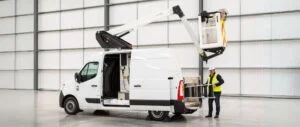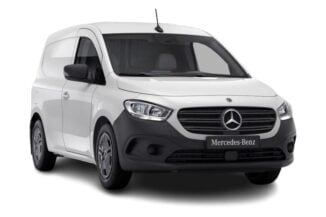Have you ever considered whether GAP insurance is necessary for your leased car or van? While your vehicle is already covered by a comprehensive motor insurance policy as per your leasing agreement requirements, a lease GAP policy (or Contract Hire GAP insurance) can offer an added layer of peace of mind.
In this blog, we explain GAP insurance by exploring its purpose and benefits, as well as considering any potential drawbacks. By weighing the ins and outs of this coverage option, we aim to help you make an informed decision on whether to take out a GAP insurance. So, let’s take a deep dive and discover if it’s the right choice for your new vehicle.
What is lease vehicle GAP insurance cover?
GAP insurance is not the same as the regular vehicle insurance you need to have as per your lease agreement terms (and UK law, for that matter). Instead of covering you while driving, GAP (Guaranteed Asset Protection) insurance is designed to protect you in case of an insurance claim. It specifically provides an extra layer of financial security in the event your vehicle is written off or stolen.
Although GAP insurance is not mandatory in the UK, it can offer added reassurance and financial safeguard, especially for those who have financed or leased their cars and vans. This is not only because the vehicles depreciate by up to 60% within the first three years, but because you can also encounter significant charges if your vehicle is declared a total loss during the agreement period.
How does lease GAP insurance work?
If your insurer declares your vehicle a total loss as a result of an accident, theft, fire, or flood damage, they would only compensate you with the market value of the car or van (second-hand value) at the time of the incident. This amount is usually less than what you initially paid for your vehicle, which may not cover your outstanding finance.
And, this is where the lease GAP insurance or Contract Hire GAP insurance comes into play. While your regular van or car insurance provider may cover the current market value of your car or van, GAP insurance covers the difference between the insurance valuation and the amount you still owe on the vehicle.
Essentially, GAP insurance protects you against financial loss by helping you settle outstanding leasing contracts and cover any additional fees that may arise, providing you with broader protection when leasing a van, pickup truck, or car for your business.
How long does the contract hire GAP insurance policy last?
The lease GAP insurance policy typically lasts for the duration of your agreement or until the finance agreement is terminated, whichever comes first.
What does the GAP motor insurance cover?
There are three main types of GAP insurance policies, each offering different coverage:
Return to invoice GAP
‘Return to invoice’, or ‘back to invoice’ GAP insurance policy will pay the difference between the insurance settlement figure and the original invoice price of your vehicle. Alternatively, if the outstanding finance balance is higher, the policy will cover that amount instead. worth at the time you file your claim.
Vehicle replacement GAP
This covers the difference between the vehicle valuation by your insurance company and the cost of a replacement vehicle matching the original.
Contract hire GAP insurance
This type of GAP insurance is specifically for those who lease their van or car without an option to buy. It’s been designed to cover up to 100% of the outstanding rental payments as well as any shortfall in the market value of your vehicle provided by the motor insurance company in the event of a total loss claim.

Image credit: Ildar Sagdejev (Specious), CC BY-SA 4.0, via Wikimedia Commons
What is not covered by the finance GAP insurance policy?
Gap insurance, like any insurance policy, has certain exclusions to be aware of.
- Having a fully comprehensive insurance policy is typically a requirement for GAP insurance coverage. If you are leasing a van, you don’t need to worry about this requirement as comprehensive insurance is already mandatory for all leasing agreements.
- GAP insurance will only pay out if your vehicle is declared a total loss according to the insurance company’s evaluation.
- It will not provide cover for any deductions made by your car insurance company. For example, if your insurance payout is reduced due to a missed payment on the insurance premiums, the GAP insurance policy will not cover this reduction.
- GAP insurance will pay the difference between the original purchase price, which is the price confirmed in the sales invoice, and the market value. If you added any extras to your van, such as a towbar or beacons, it will not cover the cost of these, unless they were listed as a manufacturer or dealer fitted options on the invoice.
Key benefits of GAP insurance for contract hire and lease agreements
We’ve heard the distressing stories of businesses facing substantial losses when their vehicle is written off or stolen, and their regular motor insurer falls short of covering the outstanding amount owed to the leasing company. Of course, this unfortunate situation is not exclusive to business vans but also impacts personal cars. However, considering the crucial role vans play in many businesses, the consequences are twofold. Not only do these businesses have to face the financial responsibility of the remaining lease payments without adequate insurance reimbursement, but they also find themselves unable to carry out their operations without their fleet.
Lease GAP insurance protects your business by offering:
- Financial protection and peace of mind in the event of theft or total loss caused by a road accident, fire, or flood.
- Payment of the shortfall, enabling you to settle the outstanding finance.
- Payment of your motor insurance excess if you are found at fault.
- Contribution towards a replacement lease vehicle agreement (there’s usually a limit on the amount of the contribution).










